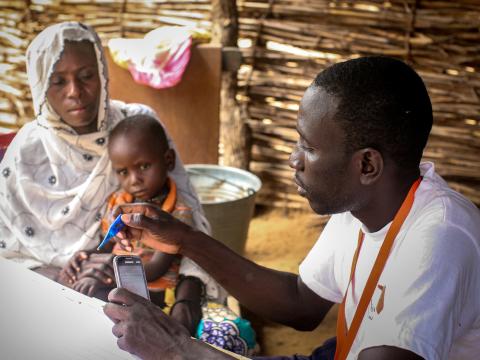Niger Integrated Child Health Services (NICe/RAcE) Impact Report
Download
In 2012, the Government of Canada, through the World Health Organization’s Global Malaria Programme, awarded a grant to support the Rapid Access Expansion Program (RAcE) in five countries in Sub-Saharan Africa: Democratic Republic of the Congo, Malawi, Mozambique, Niger and Nigeria. This grant supported the implementation of the integrated community case management (iCCM) strategy, which is an equity-focused strategy that complements and extends the reach of public health services. The iCCM strategy provides timely and effective treatment of pneumonia (with antibiotics), malaria (with antimalarials) and diarrhea (with Oral Rehydration Salts and Zinc) among children under 5 years of age.
World Vision implemented the RAcE program in Niger (Niger Integrated Child Health Services, referred to as NICe/RAcE) in four Health Districts. The project focused on these objectives for children aged 2 to 59 months:
- Increasing the quality and accountability of health services
- Improving the access and availability of health services
- Improving care-seeking behaviour among caregivers of children with malaria, diarrhoea or pneumonia
- Adoption of effective health and gender-sensitive policies, strategies and guidelines by the Ministry of Health
NICe-RAcE used Community Health Volunteers (Relais Communautaire or RComs) to provide health services in communities over 5 km away from the nearest integrated health centre. These RComs were trained to assess, classify and treat identified cases of uncomplicated pneumonia, malaria and diarrhea within communities. They extend the provision of services traditionally given by health agents at the centres, which are remote, overworked and often unable to meet healthcare demands. By acting as additional healthcare providers, RComs give community members fast, convenient and skilled care right in their community, addressing the gaps in the health system and meeting the urgent needs of sick children.
NICe-RAcE also conducted research in the two regions of Niger to test the effects of mobile technology on improving RCom service provision. This research showed a small but positive improvement in the quality of care that sick children in the community received thanks to mobile technology. Read the article in the Journal of Global Health.
Watch a video (2:33) about the NICe-RAcE program here.
Aissa Seyni, a mother of five, recounts how the intervention of the NICe/RAcE project has been a life-saver to her and other families in the community. She mentioned that having an RCOM within their remote community to attend to their sick children is such a relief, as previously it took a full day to take a sick child to the health centre.
Moussa Hassane, a father of four and a resident of a rural farming community in Niger, gave up his lucrative business as a merchant to volunteer as a Relais Communautaire (RCom) in order to help save the children of his community from dying of pneumonia, malaria and diarrhoea. He states:
My delight is to see that sick children are treated so they can have a happy life. The project has impacted my life positively to the extent that I now want to pursue a career as a Health Worker so that I can help my people always.